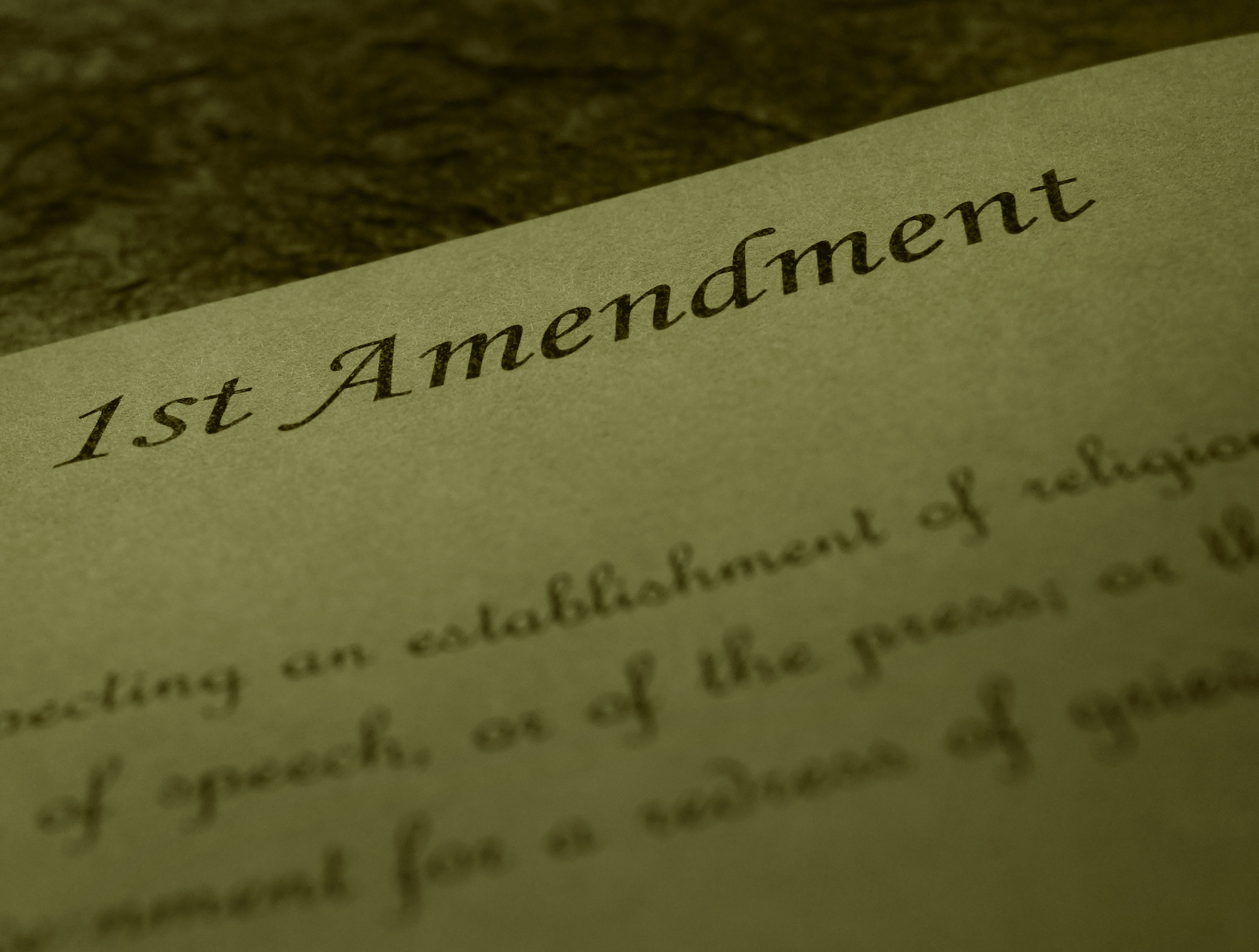
The First Amendment is a powerful restraint on the state’s ability to interfere with citizen speech. But when the state acts as an employer, an employee’s right to free expression collides with the state’s interest in maintaining an efficient and effective workforce. A recent New Jersey federal district court decision, Borowski v. Kean University, No. 2:20-cv-5172, 2025 U.S. Dist. LEXIS 125286 (D.N.J. July 1, 2025), tested the limits of the state’s ability to respond to employee speech. In Borowski, the court reaffirmed that while public employees are entitled to a degree of First Amendment protection (unlike in the private sector in most states), the state reserves the authority to discipline or even terminate them for speech made during their official duties.
Cheryl Borowski (“Borowski”) taught business law as an adjunct professor at Kean University (“Kean”). Several students complained that she made comments during classroom instruction that were offensive or discriminatory on the basis of sex, immigration status, nationality, ethnicity, and religion. According to Kean, these statements violated the New Jersey State Policy Prohibiting Discrimination in the Workplace (“Policy”), which applies to all employees at state-run colleges.
Borowski firmly denied the accusations. She explained that part of her teaching methodology was to play devil’s advocate by taking controversial positions and challenging her students to formulate a response. According to Borowski, she informed her students of this methodology at the start of each semester. She sent Kean a thorough rebuttal of the accusations, insisting that the students misunderstood her teaching style. Kean rejected Borowski’s explanation and informed her that it had conducted an investigation, interviewed numerous students, and concluded that the discriminatory statements appeared to be an expression of her own personal feelings and beliefs, not just an instructional technique. Because the Policy is zero-tolerance, Kean removed Borowski from her post. She was paid for the remainder of the semester but not offered re-employment.
Borowski filed suit in the U.S. District Court for the District of New Jersey (“DNJ”), asserting several claims against Kean and five of its administrators. After the court dismissed her original and amended complaints, she filed a second amended complaint that retained a single claim: violation of her First Amendment rights pursuant to 42 U.S.C. § 1983. She alleged that the Policy was unconstitutional on its face because it was not content- and viewpoint-neutral, it was impermissibly vague, and many of its provisions were overbroad. For example, she claimed that the Policy suppressed free speech because it threatened punishment for even trivial slights that did not rise to the level of creating a hostile work environment. She also posited several examples of what she perceived were gray areas or logical gaps in the Policy:
- “What if A, a male, holds the door open for female C, who is wearing a crucifix, but not for female B, who is wearing a hijab, has A violated the Policy based on their different religions?”
- “If a male opines that, generally, women are smarter than men, has he violated the Policy? What if he says they are dumber, does this violate the policy, but not the former comment?”
- “If a male says to a female colleague that her dress brings out the beautiful amber in her eyes, has he violated the Policy? What if a female makes a double entendre remark to a male colleague about the length of his tie? Is typical flirting between genders prohibited?”
These defects, she claimed, “so permeated” the Policy that it was “unconstitutional in its entirety and unenforceable.” In Borowski’s view, the Policy was “effectively . . . a weapon against free speech in violation of the [F]irst [A]mendment.”
The defendants moved again to dismiss Borowski’s complaint, and on July 1, 2025, Judge Martini issued an order granting the motion and dismissing the suit with prejudice. The court began its analysis by noting that a facial attack on a government policy—that is, a claim that the policy is per se invalid, not just that it is improper as applied in a particular circumstance—is “the most difficult challenge to mount successfully.” Borowski at *5 (quoting United States v. Salerno, 481 U.S. 739, 745 (1987)). Even in the First Amendment context, where this standard is somewhat “relax[ed],” the plaintiff still must show that “a substantial number of a statute’s applications are unconstitutional in relation to the statute’s plainly legitimate sweep.” Id. at *5–6 (quoting Moody v. NetChoice, LLC, 603 U.S. 707, 723 (2024)). It will be particularly challenging for a plaintiff to meet this burden when she claims that her government employer restricted her speech, because the state as an employer has broader than usual discretion to impose speech restrictions. Id. at *6. This was the U.S. Supreme Court’s central holding in Garcetti v. Ceballos—namely, when a public employee is speaking as part of her “official duties,” she is not treated as a “citizen” for purposes of the First Amendment, and so the government is permitted to punish her for the content of her speech. See id. at *7 (citing 547 U.S. 410, 421 (2006)).
Applying these principles, the DNJ concluded that the Policy was facially sound. The Policy regulated “only speech by state employees in the course of their duties,” which is permissible under Garcetti and its progeny. Id. “This is especially appropriate in a classroom setting, where the state’s interest in preserving a respectful learning environment is paramount.” Id. The court rejected Borowski’s argument that the Policy was unconstitutionally vague, finding that the operative terms—“treat,” “differently,” “derogatory,” “demeaning”—are “words of common understanding that give persons of ordinary intelligence fair notice of the proscribed conduct and do not invite arbitrary enforcement.” Id. at *8. Moreover, the Policy included several examples of forbidden conduct, such as calling a coworker a derogatory nickname or posting a demeaning image; overall, it provided employees a “discernible standard of conduct,” and Borowski had not identified any instance where it had been enforced arbitrarily. Id. Finally, the court denied that the Policy was overbroad, considering that it “indisputably” centered on the legitimate purpose of “eradicating discriminatory employment practices.” Id. at *9. Borowski may have offered hypothetical scenarios in which employees might be chilled from political debate for fear of violating the Policy, “but the Supreme Court has cautioned against going ‘beyond the statute’s facial requirements and speculating about “hypothetical” or “imaginary” cases.’” Id. (quoting Haagensen v. Penn. State Police, 490 F. App’x 447, 450 (3d Cir. 2012)). Because the Policy did not facially violate the First Amendment rights of government employees, Borowski’s claim failed.
At its core, Borowski is a predictable application of the principles expressed two decades ago in Garcetti. But it is also a prime illustration of the different standards that apply to public versus private employees in New Jersey. Although Borowski’s claim was unsuccessful, there are many circumstances where government employees enjoy the same speech protections that apply in other areas of society. For example, courts have ruled that bus drivers were protected when displaying political slogans on their facemasks, Amalgamated Transit Union Local 85 v. Port Authority of Allegheny Cnty., 39 F. 4th 95 (3d Cir. 2022); a public defender was protected when suing the county for underfunding his office, Flora v. Cnty. of Luzerne, 776 F.3d 169 (3d Cir. 2015); and a police officer and union president was protected when he sat for a radio interview about unlawful arrest quotas, Shirden v. Cordero, 509 F. Supp. 2d 461 (D.N.J. 2007). In each matter, the court determined that the employee was speaking not as an employee but as a private citizen, and they were protected from punishment. This is in stark contrast to the private sector in New Jersey, where there is virtually no free-speech protection for employees. Private-sector employees in New Jersey have petitioned the courts to create such a protection, arguing that terminating an employee for exercising free-speech rights is contrary to public policy, but to no avail. Instead, New Jersey continues to follow the prevailing nationwide view that private employers generally are not bound to the First Amendment: unless there is state action, “free speech cannot . . . be the basis of a public policy exception in wrongful discharge claims.” McVey v. AtlantiCare Med. Sys. Inc., 472 N.J. Super. 278 (App. Div. 2022).
Borowski filed an appeal with the Third Circuit Court of Appeals on July 11. Regardless of whether she is successful, her claim highlights the considerable rift between public and private employment. It is a case study in the significant protections that public employees enjoy—and the limits of those protections.
About O’Toole Scrivo, LLC
We are a carefully crafted mid-sized law firm of recognized subject matter experts practicing primarily in New York and New Jersey. We combine large-firm expertise with small-firm attention to client needs, representing businesses, insurance companies, and government entities. We are committed to delivering creative and timely results for the most high-profile and complex matters.


